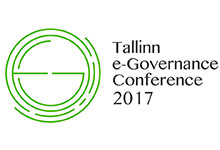Tallinn conference aims to share e-governance knowledge, build capacity in ACP countries
 Brussels 1 May 2017/ ACP: Estonia’s premier annual event on e-governance will focus on ACP countries this 29-31 May, due to the growing interest in Africa, the Caribbean and the Pacific in modernising their governance systems and implementing innovative e-governance solutions.
Brussels 1 May 2017/ ACP: Estonia’s premier annual event on e-governance will focus on ACP countries this 29-31 May, due to the growing interest in Africa, the Caribbean and the Pacific in modernising their governance systems and implementing innovative e-governance solutions.
The Tallinn e-Governance Conference 2017 will be opened by the President of Estonia Hon. Kersti Kaljulaid, allowing ministers and senior officials from ACP countries to get a first-hand experience with e-governance developers in Estonia – a global leader in e-government operations and one of the most advanced e-societies in the world.
Co-organised by the E-Governance Academy, the Government of Estonia and the ACP Secretariat, t the aim is to highlight the potential role of e-Governance for raising government efficiency, making it better, cheaper and more transparent, while offering a variety of online services to citizens.
“More and more ACP countries are looking towards innovative solutions for better and more efficient governance. The main focus of the Tallinn Conference this year is the transfer of e-Governance know-how amongst ACP countries, while also drawing on Estonia’s expertise in the area and assistance from international partners,” said ACP Assistant Secretary General Mr. Henrique Banze, who leads coordination of the event from the ACP Secretariat.
The three-day programme will entail a full day introduction on 29 May with ACP participants, including a comprehensive overview of the Estonia e-Government system, architecture and applications, as well as the principal building blocks of an e-governance system.
The main conference will be opened on May 30 by the President of the Republic of Estonia, featuring panel discussion on the international cooperation for building up national e-governance expertise. Case studies of successful e-government projects already implemented in ACP countries will be showcased, with discussions on how to replicate these solutions in other member states, or develop tailor-made platforms. Finally, the newest developments in terms of personal data protection and the use of electronic IDs will be examined by the conference, as an essential precondition for efficient e-governance services.
The last day of the conference on 31 May will focus on more concrete approaches and solutions that ACP countries could adopt when designing their e-governance systems and strategies. This includes the “Once-Only” principle, meaning the right of citizens and businesses to supply certain standard information only once, which is then shared internally by public administration offices. Discussions will also focus on boosting civic engagement using technology, new channels for e-governance, such as mobile e-services, as well as harnessing ICTs (Information and Communications Technologies) in the service of the Sustainable Development Goals.
For the full programme of speakers and more information, visit http://2017.tallinnconference.ee
– ACP Press
